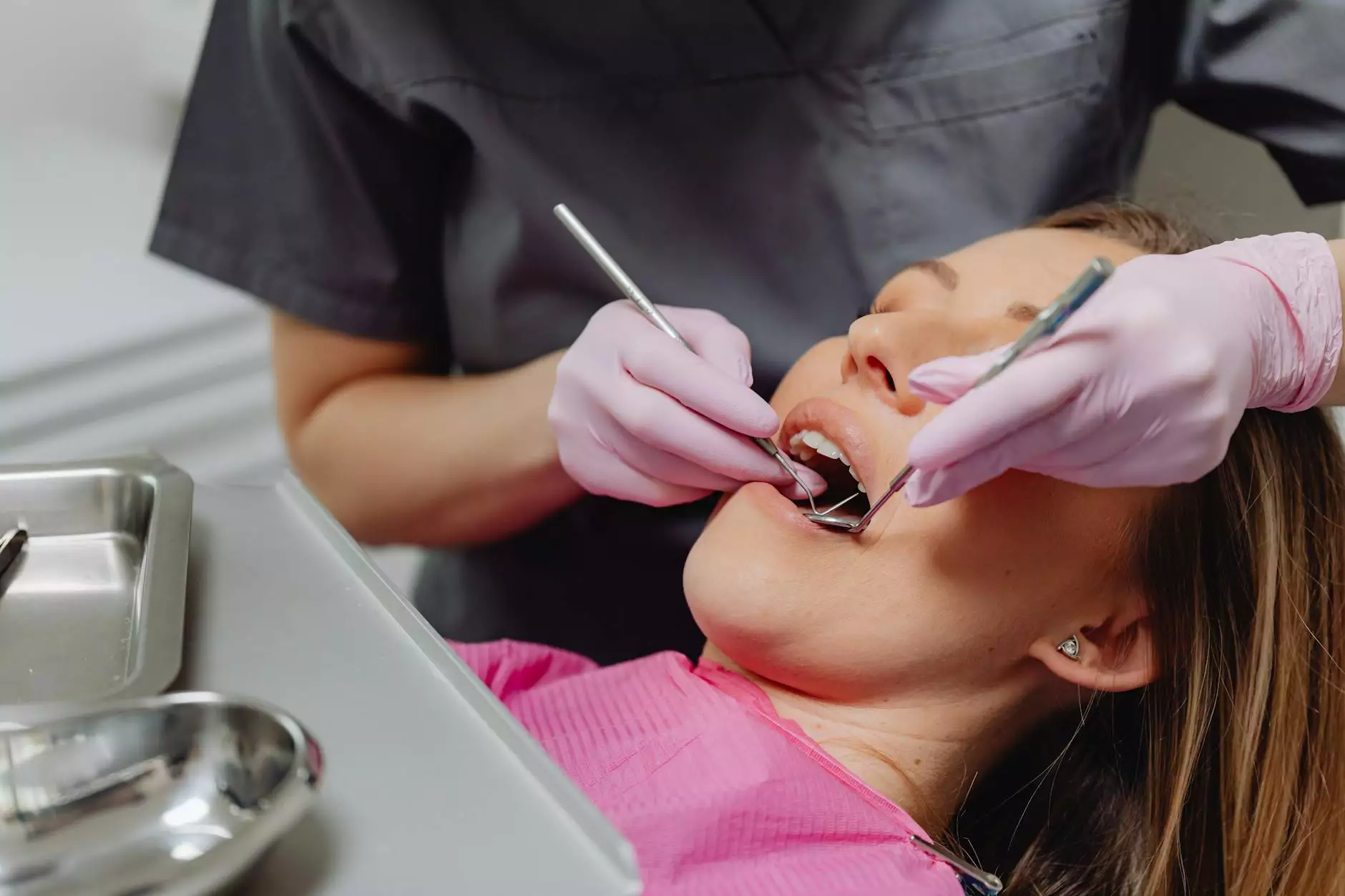The Importance of Regular Dentist Check-Ups for Your Teeth

When it comes to maintaining a healthy smile, the role of a dentist checking teeth cannot be overstated. Regular dental check-ups are crucial for not only ensuring the aesthetic appeal of your teeth but also for your overall health. This article explores the many benefits of regular visits to the dentist, what you can expect during a dental check-up, and how routine dental care can prevent significant health issues.
Benefits of Regular Dental Check-Ups
Regular visits to the dentist provide numerous advantages that go beyond just cleaning your teeth. Here are several key benefits:
- Early Detection of Oral Health Issues: Routine check-ups allow for the identification of potential problems such as cavities, gum disease, and even oral cancer in their earliest stages.
- Prevention of Dental Emergencies: By keeping up with regular check-ups, you can avoid the pain and discomfort of dental emergencies that might arise from neglected dental care.
- Professional Cleaning: While brushing and flossing at home are essential, professional cleaning by a dentist removes tartar and plaque that regular oral hygiene may miss.
- Cosmetic Enhancements: During a check-up, your dentist can discuss possible cosmetic improvements, enhancing not just the health of your teeth but also your confidence and smile.
- Education and Guidance: Dentists provide valuable information on how to care for your teeth and gums, tailoring advice to your specific needs to enhance your dental hygiene routine.
The Process of a Dental Check-Up
Understanding what happens during a dental check-up can help alleviate any anxiety you may have about visiting the dentist. Here’s a breakdown of a typical check-up process:
1. Initial Consultation
Your appointment usually begins with a consultation where the dentist or dental hygienist will ask about your medical history, existing conditions, and any dental concerns you may have.
2. Examination
Next, the dentist will conduct a thorough examination of your teeth, gums, and mouth. This may involve:
- Visual Inspection: Checking for any visible issues, including tooth decay and gum disease.
- X-rays: If necessary, X-rays will be taken to see the full condition of your mouth, revealing any issues not visible to the naked eye.
3. Professional Cleaning
A dental hygienist will then perform a professional cleaning, which typically includes:
- Tartar Removal: Using special instruments, the hygienist removes tartar buildup from your teeth.
- Polishing: After tartar is removed, your teeth are polished using a gritty toothpaste, which helps in removing surface stains.
- Flossing: The hygienist will floss your teeth, ensuring that any remaining debris is cleaned from between your teeth.
- Fluoride Treatment: A fluoride treatment may be applied to help strengthen your teeth and prevent cavities.
4. Discussion
After the cleaning, the dentist will discuss any findings from the examination. This is the ideal time to ask questions or address concerns regarding your dental health.
Frequency of Dental Visits
How often should you visit the dentist? While the general recommendation is every six months, individual needs can vary based on your oral health. Those with a history of dental problems might require more frequent visits. Always consult your dentist to establish a schedule tailored to your needs.
Common Misconceptions About Dental Visits
Despite the importance of regular visits, many people hold misconceptions that can deter them from seeking necessary care. Here are several myths debunked:
Myth 1: "I Only Need to Visit the Dentist if I Have Pain"
This is a dangerous misconception. Many dental issues are painless in their early stages. Regular visits allow for early detection and treatment to prevent pain and extensive treatment later.
Myth 2: "Dental Check-Ups Are Too Expensive"
While cost can be a concern, the long-term savings from preventive care outweigh the expenses of potential treatments for untreated conditions.
Myth 3: "I Can Skip the Dentist if I Brush and Floss Daily"
Home care is essential, but professional evaluations and cleanings are irreplaceable. A dentist checking teeth provides comprehensive care that home hygiene cannot.
The Impact of Neglecting Dental Health
Neglecting your dental health can lead to severe consequences, not just for your mouth but for your entire body. Some potential complications include:
- Severe Cavities: Untreated cavities can lead to infections requiring root canals or extractions.
- Gum Disease: Poor oral hygiene can result in gingivitis, which can progress to periodontitis, a serious form of gum disease that can lead to tooth loss.
- Heart Disease: Studies have shown a connection between periodontal disease and cardiovascular issues, as bacteria from the mouth can enter the bloodstream.
- Diabetes Complications: Poor oral health can make diabetes harder to control, increasing the risk of complications.
Building a Positive Relationship with Your Dentist
Establishing a strong, positive relationship with your dentist is essential. Here are a few tips:
- Communicate Openly: Share your fears, concerns, and dental history.
- Follow Recommendations: Adhering to suggested treatments and follow-up appointments demonstrates your commitment to your dental health.
- Ask Questions: Don’t hesitate to ask for clarification on any dental issues or treatments you don't understand.
Conclusion: Prioritize Your Dental Health
In conclusion, the act of dentist checking teeth is a fundamental practice that supports not only your oral hygiene but your overall health and well-being. By attending regular dental check-ups, you empower yourself to take charge of your health. Remember, prevention is always wiser than cure. Prioritize your dental visits today for a brighter, healthier smile tomorrow. For residents looking for exceptional dental care, consider reaching out to 92 Dental at 92dental.co.uk to schedule your check-up.



